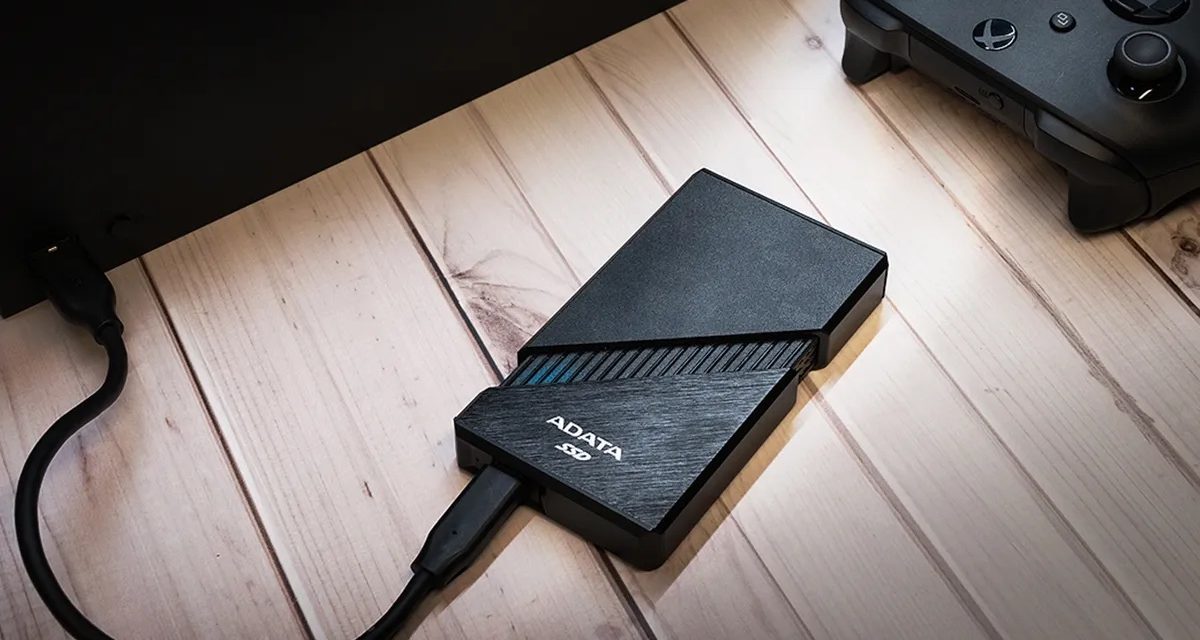ADATA has launched its first USB4 SE920 external SSD, which supports Thunderbolt 3 and 4 and is backward compatible with USB 3.2 and USB 2.0.
The company says performance can reach up to 3,800 MB/s per second. In addition, the SSD is equipped with a mainstream Type-C interface for transferring large multimedia files across devices or quickly export videos shot on mobile phones. The SE920 external SSD features a patented spring-loaded chassis and built-in fan.
The SSD adopts a proprietary patented active dissipation design and a built-in micro fan to keep it running cool. Push on the telescoping casing to activate the fan and extends the chassis to increase interior space for air circulation and quickly discharge heat. Press the casing again to retract the chassis.
According to the folks at ADATA, the SE920 is equipped with the new USB4 interface with a read/write speed of 3,800/3,700MB/s and can transfer a 10GB 4K high-definition video file in approximately 3 seconds. It connects to different operating systems and platforms such as macOS, Windows, and Android. The SE920 is also compatible with game consoles.
In addition to the flagship SE920 USB4 external SSD, ADATA has also launched the SD620 and SC610 external SSDs specifically designed for unique demographics. The SD620 is available in black, blue, and red. It features MIL-STD drop and shock resistance of 1.22 meters with a transfer speed of up to 520MB/s.
In addition, the SC610 adopts a lightweight and portable design that emulates the form factor of a flash drive with the performance characteristics of an external SSD. It utilizes a slide-out capless connector that does not require a transfer cable, so leave your cables at home when going out with the SC610.
The folks at ADATA say transfer speed is as high as 550/500MB per second, five times the performance of regular flash drives. The SE920, SD620, and SC610 external SSDs are now on sale through global channels.
The 1TB version of the SE920 costs US$141.96; a 2TB version is $196.04.
Article provided with permission from AppleWorld.Today




